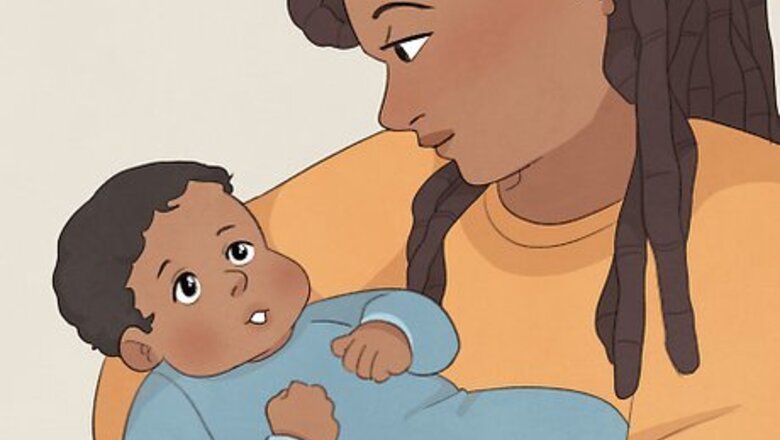
views
Your baby looks into your eyes.
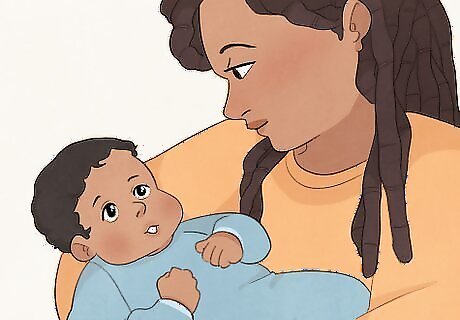
Your baby is memorizing your face and getting more attached to you. You may notice that your baby naturally looks at your face often, especially when you hold them in your arms. The baby can see you perfectly at this distance and learns to feel safe and loved when you’re close. Hold your baby often and give them little kisses and gestures of affection. Your baby will learn to associate this with love, and the more you do it, the more loved your baby will feel.
Your baby smiles at you.
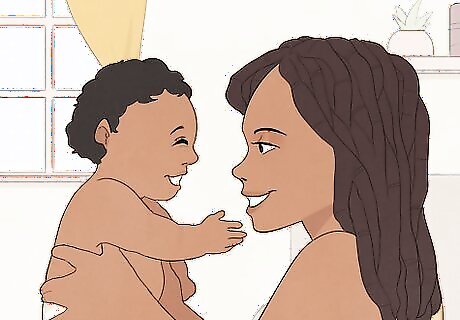
This probably means you’ve been smiling at them a lot. Your baby is learning to mimic you and reflecting that happy smile back at you to instinctively build the bond between parent and child. The more you smile, the more they’ll associate smiles (specifically, your smile) with happiness and love. You might notice your baby smiling directly at you as early as 2 months after birth. Respond positively to your baby; smile back at them, and talk to them when they make a sound.
Your baby looks around for you.
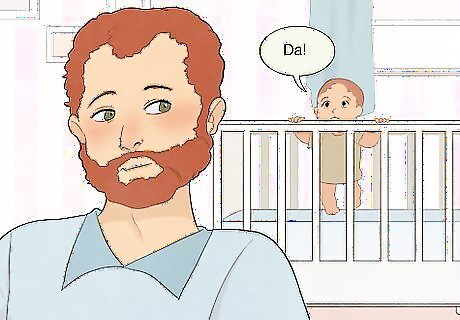
You’re an important figure in your baby’s life, and they want you close. When you leave the room for a moment or move out of your baby’s line of vision, they might scrunch their face and try to find you or cry when they can’t. They may also smile when they can see you again. This means your baby feels safe and loved around you. They’re happier when you’re around and more distressed in your absence.
Your baby uses you to hide from people.
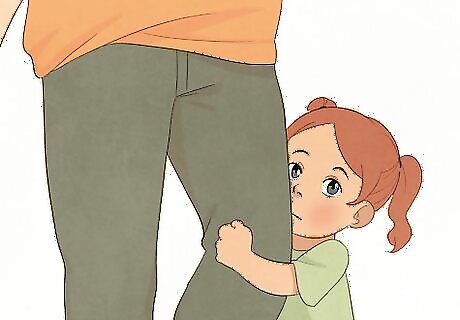
When they do this, your baby sees you as a loving protector. Around 9 months of age, babies might start getting wary of strangers and stick closer to you. If your baby starts burrowing against you and hiding their face when someone new shows up, it means you’ve become their shield—and that your baby understands how much you love them. Pay attention to your baby’s feelings and reactions around new people. If they get upset, do things you know will make your baby feel happier, like giving them their favorite stuffed animal.
Your toddler treats you like home base.
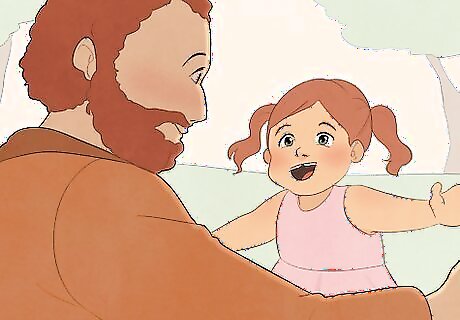
Your child will start exploring more between ages 1-2. However, when they feel loved and protected, they’ll always come running back to you when exploration gets overwhelming. They’re eager to roam around the house because they understand that you’re there to support them. Baby-proof your home so your child can roam and celebrate when they reach a new milestone (taking their first step, learning to walk, and learning to run, for example).
Your toddler relies on you for comfort.
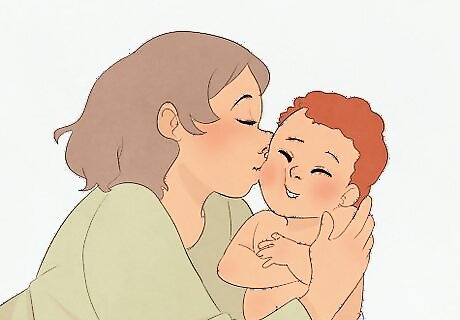
A child with a secure attachment will be calmed by your presence. Secure attachment means the child has learned they can depend on you and feel protected around you. So, if your child comes running when they trip and fall or asks for a hug when they’re sad, it’s because you’ve made them feel loved. Give your child plenty of hugs and kisses when they need comfort. Your toddler has learned to associate this with love and will probably start getting touchy-feely with you in return.
Your toddler throws tantrums.
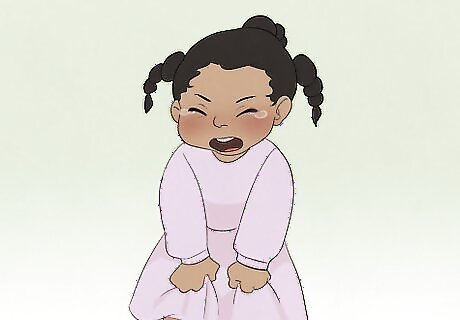
This means your child is comfortable showing their negative emotions. Tantrums are frustrating for any parent, but they’re not an entirely bad thing. They’re a sign that your child feels secure with you and wants your attention on them no matter what. Instead of getting angry, keep your cool and empathize with your child. Make sure your child knows that they’re loved, even as you set boundaries on what is and is not acceptable behavior.
Your child gives you little gifts.
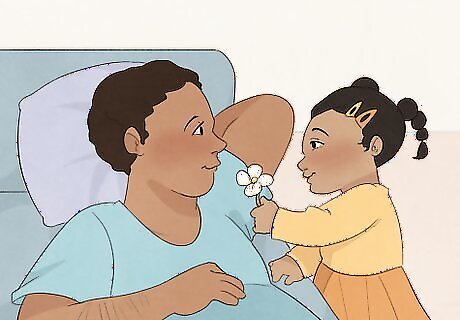
Kids learn to give from their role models. Therefore if your child keeps offering you gifts, they recognize that you treated them with love and care and want to return the gesture. Once your child understands that gift-giving is one way to show love, they’ll start bringing you simple tokens of affection! Examples of a child’s gift could be a drawing, a homemade craft, a toy, or a handpicked flower.
Your child says, “Look at me!”
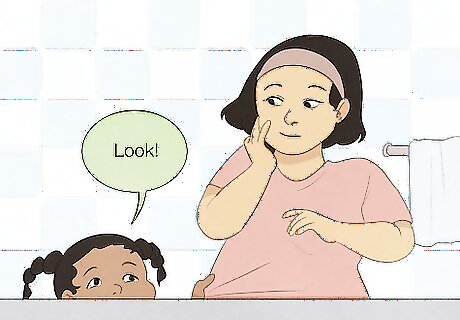
This means that they love you and want your approval. They might start helping you out more and doing chores like picking up toys or brushing their teeth without complaint. When your child constantly seeks your approval, you’ve made them feel valued and loved—and they want that feeling to last. You can further build on your child’s self-esteem by praising their earnest efforts and helping them further develop their strengths—and, of course, to keep letting them know that they’re loved.
Your child says, “I love you.”
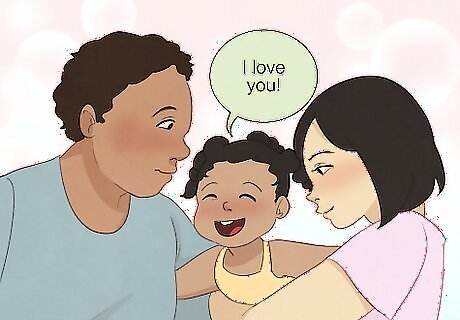
Hearing those words from a child means they’ve heard you say it too. Because kids copy and learn from their parents, you’re their main source of “I love you’s,” and you’re the one who taught them what it means. When a child says “I love you,” they’re reflecting all the love you’ve shown them. Your child might not say “I love you” word-for-word every time, but there are other phrases that mean the same thing to them. For example, “I wanna marry you” is a pretty normal thing for a preschool-age child (around 3 or 4) to say to parents because, in their mind, it’s the same as a simple “I love you.”
Your child confides in you.
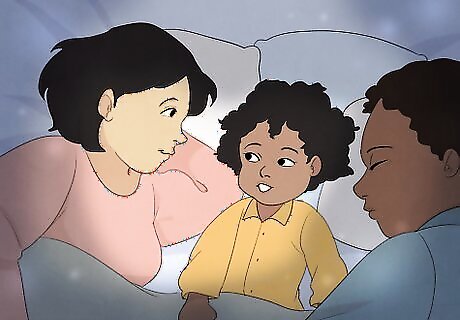
This means they feel loved enough to trust you with their thoughts. Later on, when your child gets old enough for grade school, they might have a secret or two that they’re guarding. This is natural as kids explore their independence. But, if they share details of their life with you, it's because they know you’ll be supportive and loving no matter what. Reader Poll: We asked 928 wikiHow readers who are parents, and 64% of them agreed that if you're child chooses to spend time with you it's another strong sign that they don't resent you at all. [Take Poll] So every time you child asks you to do an activity or have a conversation, remember: this is another strong signal that they love you!













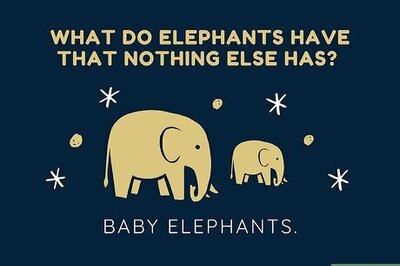
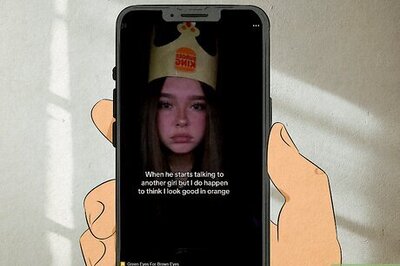





Comments
0 comment